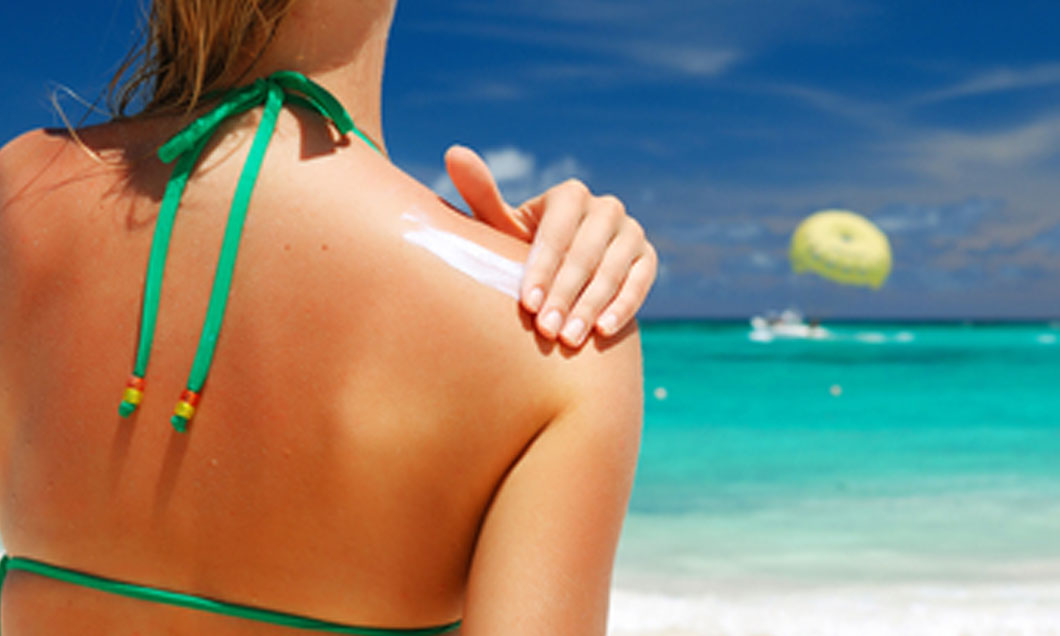The Summer Season is Soaring swiftly in – but what does it really mean for our skin?
In recent years the sun’s U.V. rays have been proven destructive to the delicate DNA of our cells. But, while there is a need to protect, are we unwittingly harming ourselves by blocking natures natural light? What is the truth about sun care? How do we protect ourselves from causing unrealised deficiencies within ourselves? The sun is a giant ball of energy which powers our whole planet, and, while it is critical for life, why do we need to protect ourselves from it? The sun rays are divided into 3 categories.
UVA, UVB & UVC
- UVA rays are known as ‘Ageing’ rays as they are the longest ray and can penetrate our very skin.
- They are present when there is daylight – hail, rain or snow – they are sneaky rays as we don’t feel the effect on our skin but they chip away at our healthy skin cells one day at a time.
- UVB rays are known as the ‘Burning’ rays as they are present when the sun is strong and are the rays which stimulate our melanocytes (tanning rays) and give us a tan. We are more aware of these rays as we can see the physical impact they have on our skin. We are more likely to protect ourselves from this ray as we do not want to burn.
- UVC rays do not really concern us for now as they are the shortest rays and do not penetrate our stratosphere.
Dermis-chart
On the other hand – the exposure of skin to UV rays brings about the natural production of Vitamin D which is essential for the production of the hormone- melatonin. Melatonin is a very important hormone for the body and is responsible for the natural sleep cycles, menstrual cycle as well as anti- ageing (as it is a powerful anti-oxidant as well as a hormone). Studies have shown in recent years, that as we become more aware of sun protection we are unwittingly making ourselves deficient of some very important vitamins and hormones.
Does this mean we should ditch the sunscreen?
Absolutely not! We must allow some vital natural sun exposure while blocking potentially harmful rays all at once. Research shows that about 10-15 minutes of sun exposure outside of peak high temperatures is adequate for the production of Vitamin D. At all other times we should be consciously re- applying our Sun Protection Factor (SPF) at regular intervals.
So what type of Sun Protection Factor is right for you?
If your skin is sensitive, a ‘physical’ SPF is useful as it contains no chemicals, but rather physical agents such as Zine Oxide or Titanium Dioxide. Otherwise, a broad spectrum chemical sunscreen will give you adequate protection. An SPF of between 15-30 is generally best – reapplying regularly during the day.
Feeding your skin with Anti- Oxidant boosting supplements and foods also holds merit in arresting and correcting Free Radical Damage to DNA in skin cells caused by too much sun exposure. Vitamin A, C & E are the most prominent of these Super Hero Anti-Oxidants. If you are still unsure about how you should be protecting your skin, we at Rejuvenate Advanced Skin Clinic will happily help you in your quest for a protected skin without compromising your health.
Murad skin care provides an extensive range of day creams with broad spectrum SPF’s ranging between 15 and 30. For more sensitive skins, Environs RAD SPF 15-25 will soothe as is protects.
So make sure that you stay safe in the Sun.
Contact us with your skin or treatment query – Rejuvenate Advanced Skin Clinic. 045409313











No Comments